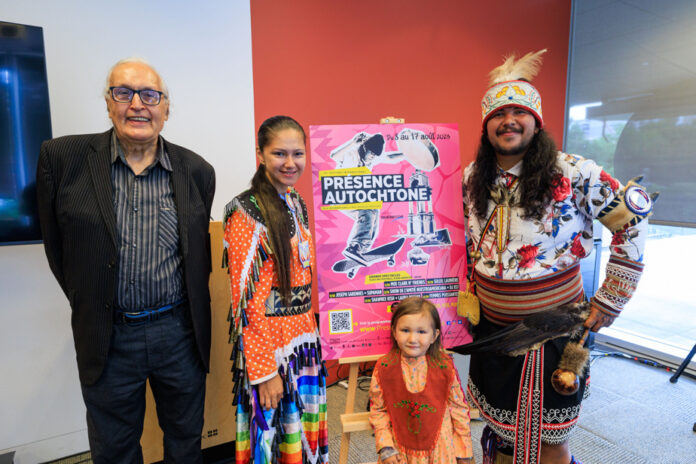To showcase Indigenous artistic and cultural diversity in Montreal, Kwena Bellemare-Boivin and her husband, Owen Mayo, will perform a traditional dance at the Présence Aboriginal festival this summer. This is one of the many events on the program of the annual meeting, which will present its 33rd edition next month.
Kwena and Owen can’t wait to present their number, prepared in collaboration with their daughter Nehirah. For them, it is a means of conveying their cultural heritage in society. “During the year, we go to schools, events and other festivals to talk about our culture,” says Kwena. We see that people want to learn more, and we hope that they will be there in large numbers. »
Native Presence, which will be held from August 8 to 17 in Montreal, on the Place des Festivals, in the heart of the Quartier des Spectacles, will bring together a range of artists. As every year, a giant teepee will be erected in the heart of the site, to illustrate the “vibrant” aspect of the place during this period.
The artistic director of the event, André Dudemaine, wishes to make it a place of creation, meetings and discoveries to create a relationship between the artists and the public.
In addition to dance performances, some sixty films that tell the journey and history of Aboriginal peoples will be presented at the Cinéma du Parc. Several of these films will be premiered, including five by author Witi Ihimaera, selected as guest of honor. Twice Colonized, by artist Aaju Peters, will open the series of screenings.
With the First Peoples’ Festival, André Dudemaine also sees an opportunity to highlight the “recovery” of Montreal by First Nations peoples. He hopes that, collectively, the metropolis will remember that the Aboriginal peoples occupied the island long before the Europeans arrived. Their presence should never be forgotten. Hence the name of the festival.
For Kwena Bellemare-Boivin, the festival sends a very positive message to the public. The presence of First Nations peoples persists over time, she says. “Our message is to let people know that we’ve been around for years. With the boarding schools, we tried to take those cultures away from us, and to see that we can continue to practice those dances and those songs, that’s what we want. »















